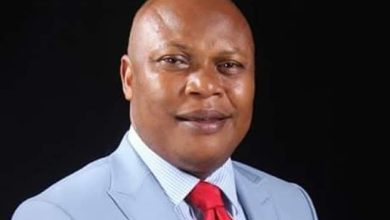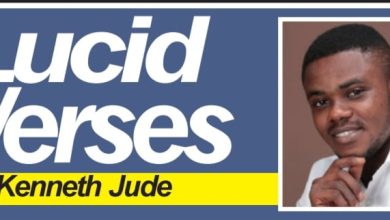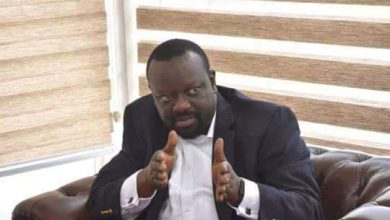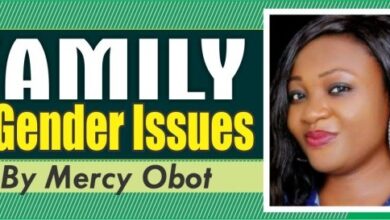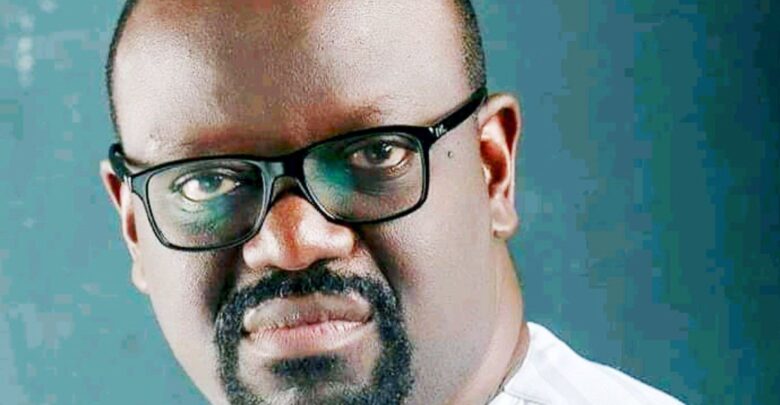
Ide Owodiong-Idemeko is a renowned humanitarian who has had a glowing and successful career spanning nearly three decades in the upstream oil and gas sector of Nigeria. A political scientist by training and politician of high repute, Owodiong-Idemeko, whose humanitarian foundations are dishing out succour and milk of human kindness to indigent people in communities across Akwa Ibom State in this exclusive interview with Crystal Express speaks on trending issues in Niger Delta region, Akwa Ibom State and his plans for the future. Excerpts:
Let us meet
I am from a village called Ikot Ukop in Okop Ndua Erong, Ibesikpo Asutan Local Government Area of Akwa Ibom State. I am married with four children: two girls and two boys. I am a Catholic by faith. I hold a Bachelor of Science degree in Political Science and Public Administration from the University of Cross River State (UNICROSS) now University of Uyo, 1987. I also hold a Master of Science degree in Comparative Politics from the University of Ibadan, 1991. I had a brief stint as graduate assistant in the then UNICROSS and for the past 29 years, I have worked in various roles in the oil and gas industry. I hold the title of Fellow, Chartered Institute of Personnel Management in Nigeria (CIPMN). This is basically who I am.
Recently you showed interest in partisan politics by contesting in the last party nominations process. Why the interest after a successful career in the oil and gas industry?
First, I am still pursuing my career, racing to the finish line by God’s grace. But beyond that, I have always had this deep interest in offering myself for public service. I think Nigeria needs people with experience, competence and credibility to step into public office and make available their wealth of experience to positively drive the governance of this country; and to ensure the greatest good for the greatest number of people in our society. That is basically why I showed up in politics. My involvement in politics and public service started long ago when I ran for the Students’ Union elections in 1986 and emerged victorious as the first elected secretary-general of the Students Union Government in the then UNICROSS. I later became the foundation/pioneer president of the Alumni Association of University of Cross River State/University of Uyo between 1988 and 2001. I built that association together with others into what it is today. I have always offered myself for public service not only in respect of government office but also in other community and public- related services.
Read Also: Niger Delta Needs Ownership Of Resources
Having failed to realize your dream in 2019, do you have plans to actualize it in 2023 by throwing your hat into the ring once again?
Although I did not get the ticket in 2018 when I contested for the Senate seat, I have not stopped rendering services to our people. My wife and I have been doing little things in our community with great love, to borrow the words of Mother Theresa. Wodiong Senie Foundation, which my wife and I set up a few years back continues to sponsor annually a Community Health Improvement Programme (CHIP) that provides annually medical missions to our local community, potable water and periodic medical interventions for the critically ill. The foundation also sponsors annually educational scholarships for at least five indigent students of Akwa Ibom origin in higher institutions of learning. Not to forget our support for sporting events and other worthy ventures, for example during the lockdown, we provided cash reliefs for over 50 struggling families. So, God has continued to use my wife and me to offer public services; so I don’t see service to mankind from the singular perspective of holding a political office even though I recognize that being in such positions may lead to bigger and better ways of impacting on the lives of majority of people in our society. Presently, I am weighing the options of contesting for a position in the state and hopefully soon, my position will be made public.
What is your impression of Governor Udom Emmanuel’s strides in the state in the past five years?
As a student and former teacher of political science, I know that government is a continuum, and you build on the successes of past administrations while trying to avoid the failures and pitfalls of the past. Therefore, in that context I will say that Governor Emmanuel is doing his best in line with his vision for the state. At this point in time in his Completion Agenda, I would advise that we tarry awhile till the completion of his tenure so that we can have a better perspective, reflection and assessment of the accomplishments of the governor and his administration. So far, we have seen his achievements in industrialization, promotion of agriculture, investments in aviation through Ibom Air, the landmark 21-storey smart building, roads, and bridges across the state and so many other projects. All of these are quite enormous, and I am happy that he has elected to focus on completing the major and significant development projects initiated by his administration. At the end of his tenure we will have a more holistic opportunity to make an assessment.
Read Also: Our Moment Of Economic Reconstruction Is Here – Governor Emmanuel
I believe you must have kept an eye on the senator representing Uyo Senatorial District, are you impressed with his representation in the Senate?
I have information that Senator Albert was being honoured with an award as one of the great democrats of our time. I applaud and felicitate with him on this achievement. Again, let us await the completion of his tenure before conducting an assessment; but so far, so good.
You have worked for decades in the oil and gas sector, are you impressed with the development in the Niger Delta region vis-a-vis the resources and fortunes the oil firms operating there have taken away?
We need to be very careful on how we make sweeping allegations. The problem of the Niger Delta did not begin with oil exploration. Students of History and Social Sciences will attest to the fact that it dates to the time our colonial exploiters came and carted away our oil palm produce to drive industrial revolution in Western Europe. To understand the challenges of the Niger Delta, we need to go back to history and properly conceptualize it to enable us profer solution to the problems of the region. We have been given an opportunity to address some of the issues through the Niger Delta Development Commission (NDDC). We should hold our leaders accountable. Monies have been accruing to NDDC but how are the funds being utilized in the Niger Delta? That is my fair and unbiased comment on that matter.
Still on NDDC, are you satisfied with the ongoing forensic audit of the interventionist agency?
All Nigerian Ministries, Departments and Agencies (MDAs) need to undergo one forensic audit or the other: not just NDDC. The number one problem in Nigeria is massive corruption and it’s not limited to NDDC. It cuts across all MDAs in Nigeria. The forensic audit is good, but it must go round all MDAs in the country so that we can sort out all the bad eggs and reposition the country for progress and development.
At 60 years, Nigeria appears to be at crossroads with agitations for restructuring by some and separation by others and still we have those in support of a united Nigeria. What is your take on this?
I will like to say that the amalgamation of Nigeria in 1914 was a fraudulent social contract and since then all major policies in Nigeria have been based on fraud. However, the historical evolutions of countries take different forms and different patterns. We have seen countries welded together by war and conflict and some have been through peaceful processes. The issue of restructuring has always been with us. Whether you want to call it the national question, call for sovereign national conference or restructuring, Nigerians have always seen the need for us to form a better union.
We always have conflict between the forces of progress and forces of retrogression. That is those who want us to form a better union and those who want us to remain where we are. I believe that Nigeria will be better in a restructured country where we all sit at a roundtable and renegotiate the terms and conditions of this fraudulent social contract. There will be a greater country that will be the pride of Africa and the black race if we stay together. I will wish we remain together in a restructured political framework for a better relationship with the constituting parts either in a confederacy or much more loose form of federalism. That is my view and position.
Insecurity in Nigeria has forced some states and regions to begin to establish their own security away from federal forces. Are you in support of that?
I am completely in support of state-owned security outfits; I am in support of even having local government police.
Don’t you think that the governor of the state may abuse it for political reasons against opponents?
What is the difference between having Federal police that is hijacked by the Federal Government and state police that could be subject to abuse as well? None! We are always against changing the status quo. Our society needs it. We are under-policed, that’s the fact! We don’t have enough policemen to meet up with challenges of security in the country.
In other countries where it is obtainable, we should learn from them how they operate federal, state and local police at the same time. We should learn how they are operated and put proper checks and balances to prevent it from being hijacked by anyone. We can form a three-tier level of security for our country, where the federal police oversees federal issues, state police looks at state issues and local police restricts itself to community policing issues. That is my view – whatever challenges we are encountering; we can develop a framework to mitigate them.
Are you satisfied with the way state electoral commissions have handled elections across the country or should election matters be left to only the Independent National Electoral Commission (INEC)?
I am in support of a true federal structure where the federating parts are given some independence. That means we can have the state electoral body conduct elections for state offices as far as we guarantee the independence of the electoral body.
Nigeria has some structural defects and how best can we address this problem?
Firstly, I think we have a problem where our institutions give away the impression that they are robust, strong, and independent, but sadly they are not. They can be easily hijacked and manipulated to serve private interests. We need to ensure that our institutions are truly strong and relatively autonomous from the manipulation of private interests. The institutionalization of democratic structures is a criterion in building and deepening our democratic values. The different components that make up Nigeria should be able to develop at their pace and harness their resources and make adequate contributions to the centre independently of one another. Going forward federalism or confederacy is key. Both can enhance democracy. Security too is key to ensuring internal and external peace and the corporate existence of Nigeria as a country. We must invest in our infrastructure. We also need to invest in education and the health sector to drive the progress of the country.
Stability of Nigeria is paramount and in line with this, do you think the South East which is the only region yet to taste the Presidency of Nigeria should be given the opportunity in 2023?
Honestly, I do not see anything wrong with that. I don’t understand why some people should be afraid of allowing the South East to take a shot at the Presidency. More than 50 years after the civil war there seems to be some underlying hesitation to fully integrate the South-East in the governance of the country. It is only good they produce a president to give them that strong sense of belonging in Nigeria and erase the feeling of marginalization. The South easterners have continued to prove that they believe in Nigeria. They have not stayed away after the war but are seen in every part of this country. There is this saying that if you go to a place and do not find an Igbo man there, then the place is not good to live in. They have invested so much in this country and should be given an opportunity to produce a president of this country. The South-East is not bereft of competent people, and they have lots of them that can move Nigeria forward. I am in support of South East producing a President for Nigeria.
What is your take on the deregulation of the downstream oil sector which majority of Nigerians are frowning at?
True, most Nigerians are not happy but to move our economy forward, we will have to liberalise the downstream. It is a bitter pill we must swallow. While it is always difficult at the outset, as you continue to liberalise and allow the market forces to determine pricing and costs, things soon get better. Take for an example the telecoms industry. When the Global System for Mobile Communication (GSM) came to Nigeria it was very expensive and a lot of people couldn’t afford it. Even SIM cards were expensive but because the sector had been liberalised, you can just walk in and get a phone at practically no cost now, but prices vary according to your taste. That is what you get with liberalisation and that will also be seen soon in the oil downstream sector. Look at diesel for instance, when it was liberalised it became affordable and everywhere. What I think the leaders of the country should do is to ensure that we are able to refine our products here in Nigeria. That is the real issue – we cannot be an oil producing country and keep importing refined products. It is not a proper economic model for the survival of any country.
How could one explain the inability of four giant refineries in the country not working despite the enormous funds spent to fix them?
You know the answer yourself and asking me is laughable. This is why Nigeria must elect credible and competent leaders, people that can conceptualize issues and be able to drive and deliver solutions to problems. Today we are celebrating Dr. Akinwunmi Adesina of the African Development Bank and Dr. Ngozi Okonjo-Iweala because they are competent, credible, knowledgeable, and experienced people and we are happy to have them as Nigerians.
Why don’t we ensure we elect the right set of people into public offices right from councillors to chairmen up to the highest political office in the land? That is what I preach that when you get such competent people into offices you can hold them accountable. Followers should also know that it is their right to hold their leaders accountable.
Akwa Ibom State has successfully rotated the zoning of the governorship in the three senatorial districts and some people are of the opinion that the position should be an open race in 2023 for the best candidate to emerge. What is your take?
Whatever way the discussion goes, at the end of the day, the need to elect a competent and experienced hand to lead the state remains paramount. If it is the turn of Uyo Senatorial District, the focus should be to bring out the most credible, competent, experienced, and accessible person to take the shot. Even if it is thrown open, because we have completed the zoning process as canvassed by some pundits, we must focus on those basic qualities I have listed – credibility, competence, experience and accessibility – as key qualities for candidate selection. I presume that at the right time, stakeholders will meet to fashion out a way forward for the state.
Politicians are already jostling and canvassing for 2023 elections, but some are saying it is a big distraction on the activities of governance. What is your view?
The dynamics of politics is not something you can simply legislate on. When you do, people simply go underground and become clandestine; and that could be more distracting. We are still suffering from military hangover to think we can legislate on the dynamism of politics. This is democracy and you have people who want to plan ahead of time while others want to wait for the right time before stepping out. To me I don’t see it as a distraction. The party machinery is there to manage all these challenges and should be doing just that.
You are a renowned philanthropist, could you please divulge some of your activities in that direction?
I will describe myself more as a humanitarian rather than a philanthropist; but my humanitarianism is embedded in the teaching of our Lord Jesus Christ which says that whatever you do unto the least of my brothers, you do unto me. With support from willing friends, my wife and I are able to do the work we do through Wodiong Senie Foundation, which I have already enumerated. Presently, we are trying to complete the fencing of the Civic Centre at Nung Udoe in Ibesikpo Asutan Local Government Area which costs run to millions of Naira. We want to ensure that people have a secure environment to carry out their community meetings and social engagements.
The other NGO I floated which is more focused on promoting democracy and good governance is called ‘1001+ Voices Initiative for People Empowerment. Recently, we have been traversing the state, offering 1000 face masks to each local government to help prevent the community transmission of the COVID-19 pandemic as well as empower the local tailors who design and produce these face masks. So far, 9,000 Akwa Ibom indigenes comprising school children, traders, motorcycle transporters, traditional rulers across nine local government areas have benefitted from this advocacy programme.
1001+ Voices Initiative is also a broad-based organisation focused on promoting and advancing democracy and good governance. Recently, we submitted two memoranda to the state government, namely: “Akwa Ibom State vs Covid-19: Today, Tomorrow and the Days After” and “Changing the Education Narrative for Akwa Ibom Children”.
2023 will soon be here and are you interested in any public office?
I think I am eminently qualified for any public office I want to occupy in the state or federal level. So I keep my options very open, but time will tell.

